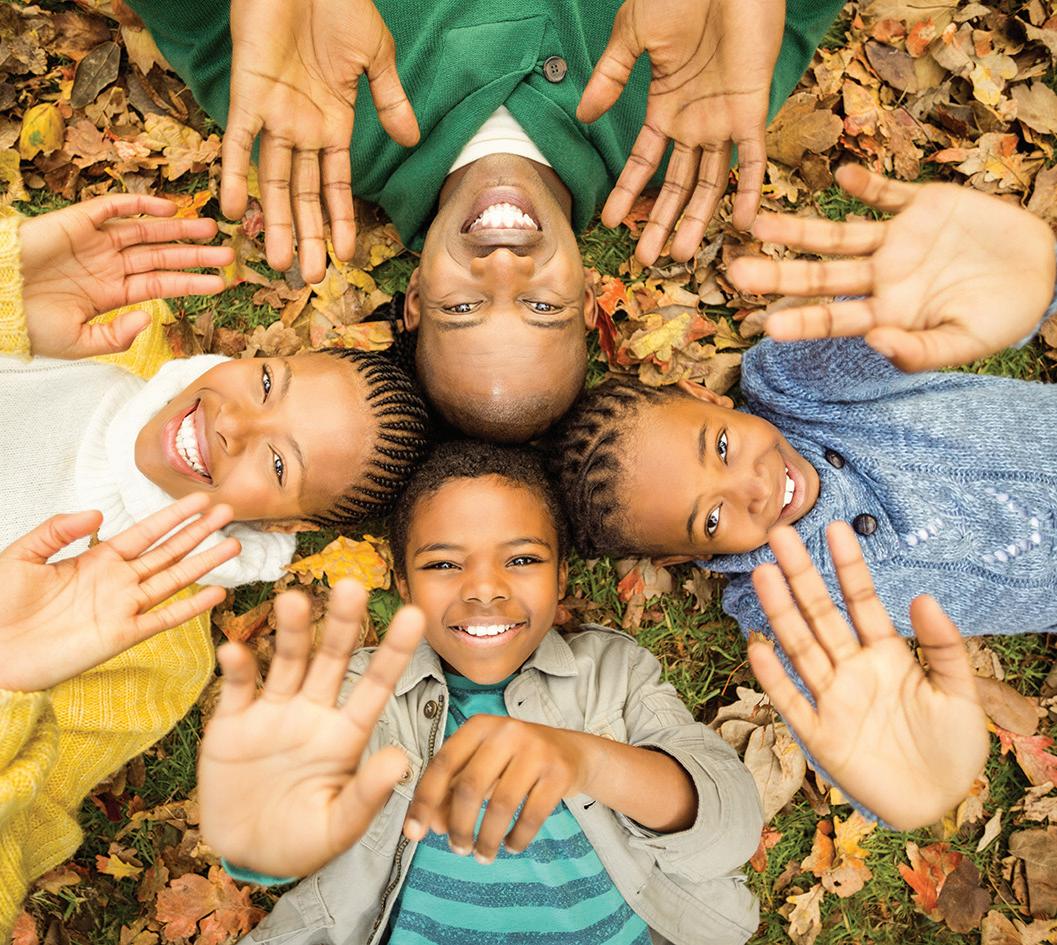
9 minute read
FAMILY LOVE
A VOCATION AND A PATH TO HOLINESS

Advertisement



THE WORLD MEETING OF FAMILIES, TAKING PLACE IN ROME THIS MONTH, ENCOURAGES US TO REFLECT ON FAMILY LOVE
BY JOHNNY DOHERTY CSsR
It’s hard to believe that it is four years since the ninth World Meeting of Families took place in Ireland in 2018. There are all kinds of memories of that great occasion. Many of the public memories are of the visit of Pope Francis and these are a mixture of celebration and controversy.
My memories are of the few days in the RDS. Thousands of people gathered there to express their commitment to the vital importance of marriage and family life. This was not just a commitment in words. It was also shown by the variety of ways that people from around Ireland and other parts of the world are actively supporting every aspect of marriage and family life.
WORLD MEETING OF FAMILIES 2022
At the end of the meeting in Ireland it was announced that the next one would be held in the Diocese of Rome in 2021, following the arrangement that it would be every three years. Because of the COVID-19 pandemic, this had to be re-arranged for this year and will now take place in Rome on June 23-27, 2022.
The theme for this five-day gathering in Rome is ‘Family Love: A Vocation and a Path to Holiness’. Most of us will not be there for it. But all of us can be part of it by taking time to reflect on this theme and to pray, during this month of June, for those who will be present at it.
Until comparatively recently, the words marriage and family life went together and were clearly understood. Most women and men got married; they had their children; the vast majority made a success of their family life, not without problems of course, and at times with great sacrifices.
We now live in a different world and society and church.
• Most couples still get married, but it is no longer taken for granted that they will marry in church – many other venues are available for them today. • Many marriages break up for various reasons. Some of the people involved in






these break-ups marry again. • Many couples choose to live together.
Some of them have their children and then decide whether to get married or not. • And we now have the question of samesex marriage. That is a question that was unheard of until very recently. But it is an important question that has implications for all of us.
All of these changes in adult relationships give rise to a great variety of family combinations.
• There are married couples with children. • There are married couples who do not have children. • There are cohabiting couples with children or maybe without children. • There are lone parents with children.
Some of these may have been married, or divorced, or bereaved. Many of them may not have been married. • There are divorced and remarried couples
with children, often with each person bringing children of their own into the new family and then having children together. • There are single people who never had children and who live alone or perhaps with siblings. • There are same-sex couples, some with children and some not.
These lists are not exhaustive but rather are indications of how things have changed and are changing in relation to family life. All this rapid change has serious implications for both church and state. The state responds to these changes mostly through legislation, at times with a lack of reflection on the effects they are having on family and society.
We too, as the church, need to respond to them. The questions and responses are not theoretical. Most, if not all, of the forms of relationships and families are present in every parish and faith community. Our responses must be filled with love and respect while keeping an eye on how the legislation of the church can or cannot change to meet the new realities.
LOVE AND INCLUSION
The common denominator of all these forms of relationships and families is undoubtedly love. It is that which makes them sacred in themselves. One of our strongest beliefs as followers of Christ is in the statement that “God is love. Those who live in love live in God and God lives in them.” This wonderful revelation does not have any if and buts. It applies to all situations of love and applies where there is faith and where there is none.
In the life of the church, many of us are inclined to exclude those who do not measure up to our ideals of marriage and family. In his letter Amoris Laetitia: The Joy of Love, Pope Francis had to face this tendency by addressing the question of those who are
divorced and remarried. There are those who say that people like this are excommunicated. He says clearly that they are not! The church community has a great responsibility to ensure that they can find their proper place within the community.
The same needs to be said about all those in other forms of relationship. Our main task must be to discover the ways in which all can find a home among us, because each form of family relationship is sacred.
For us as Catholics, there are several values that need to be held together as we look at the way things are today. I suggest the following.
1. The right to life and full dignity of every human person from the moment of conception to the time of natural death.
This is central to all our considerations. 2. Every family, whatever its combination, is a sacred place where Christ lives. This is particularly true where there is baptism. 3. The marriage of a woman and man who choose to get married in and into the church is one of the seven sacraments of the church and, as such, is due particular reverence and support from all of us. 4. We are in communion with the universal church, the regional church, the diocese, and the parish. We take our lead in terms of teaching from this communion. 5. We can only deal with the complexity of today’s church and world when we bring it into prayer, especially as parish communities where people live their lives.
FAMILY LOVE, A VOCATION
The main responsibility for a family is with the adults in the home. Parents are seen as the primary teachers of their children. They call on many other resources to help them in this, such as schools.
When parents bring their child to the church for baptism, this primary role is also recognised. They have to declare that they want this sacrament for their child. They then promise to bring their child up in the faith of the church. And I am sure that every parent at that time means it when they say that they will do this.
But they cannot do it on their own. Nor should they have to do it on their own. A very important part of every sacrament is that the community of the church promises to support these parents in every way possible so that they can fulfil their promise.
All the baptised have the same vocation – to be followers and disciples of Jesus Christ. This is lived out in a variety of ways – as married; as single, including children; as parents; as priests and deacons; as religious. It is in each family that this sense of purpose is nurtured and strengthened by the quality of love in each home.
That is why each family needs to experience the support of the parish community in their particular circumstances. Without that active support they can see themselves as not included.
So, we come back once more to the theme of the World Meeting of Families in Rome this June. Family, based on love as it is, is a major source of holiness for all involved. This holiness grows through the quality of love that is consciously developed by adults and children through giving good, regular, creative time to each other; through loving each person as s/he is, not how you might want them to be; by building a family in which praise, affirmation and thanksgiving are in the very atmosphere and where criticism is banned; where affection is freely expressed in word and in action – in other words, a family home where each person is glad to be. This takes effort and constantly making decisions to love.
WRAPPED IN PRAYER
When you see that heading, some may immediately think: ‘here comes the holy bit’! But part of the purpose of prayer is to help us all to know that our love is ‘the holy bit’. God is the origin of our vocation, God is where the path to holiness leads us, and ultimately God is the one in whose image we are made, individually but especially as a family. We need to develop:
• Couple prayer, so that those who are married may go beyond the limits of love that they set for themselves and constantly grow in love and affection for one another; • Family prayer, so that we can know that
Christ lives in us and among us in our homes; • Prayer with the parish community, especially Sunday Mass, so that we make a new beginning each week in our love and in our faith commitments; • Prayer by the parish community, so that we can grow in compassion for each person and each situation by praying regularly for one another.
‘Family love, a vocation and a path to holiness’ can and should become more than a theme for the World Meeting of Families in Rome on June 23-27. It can become the motto of each family and the aim of each parish community.










